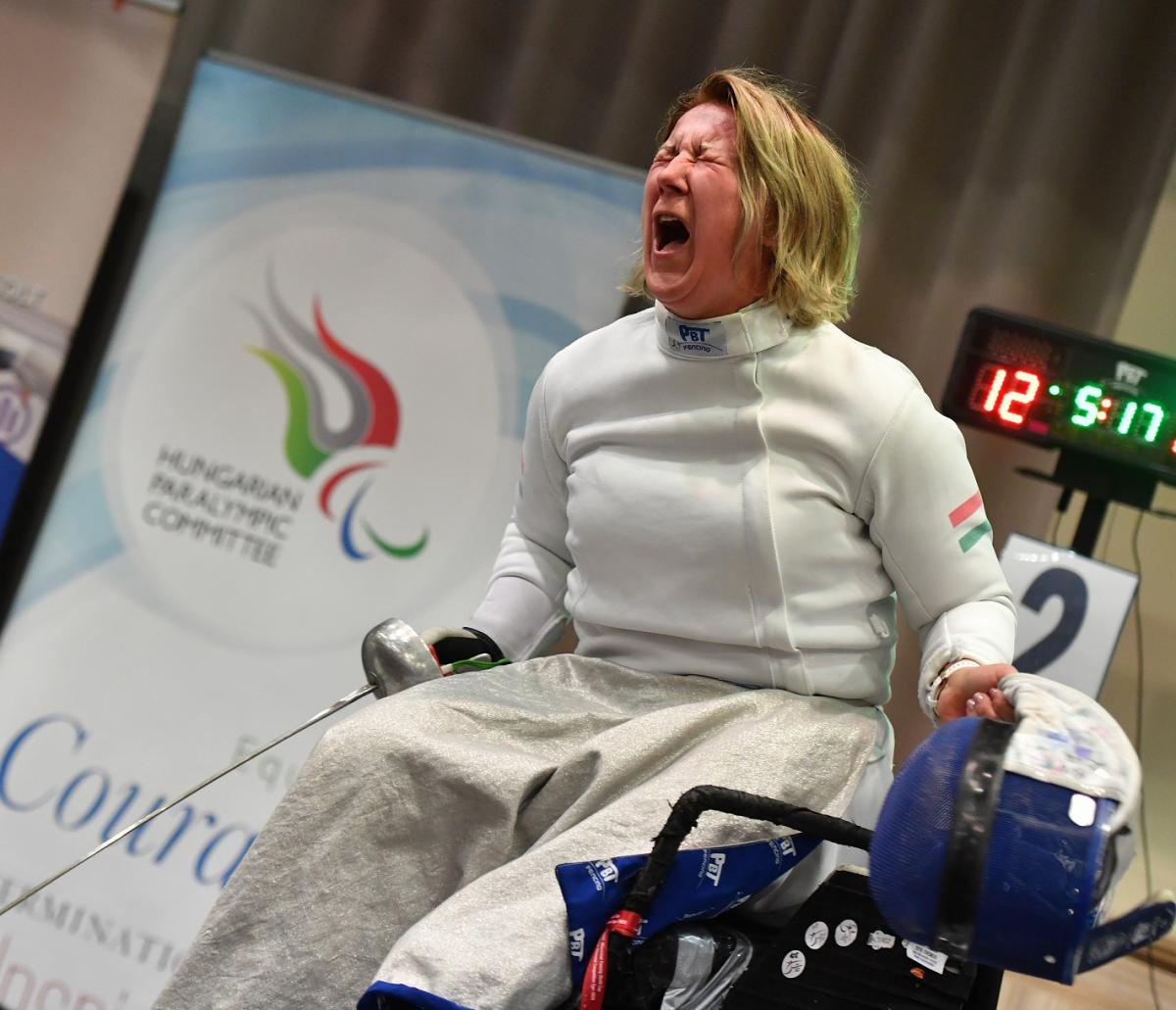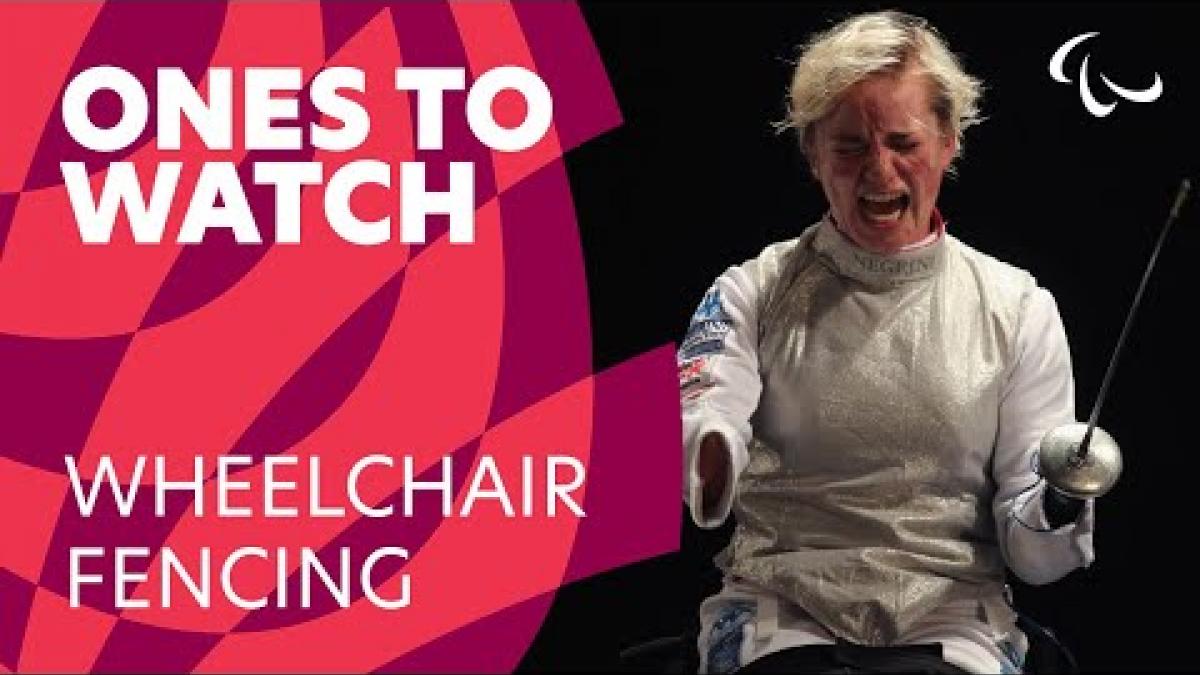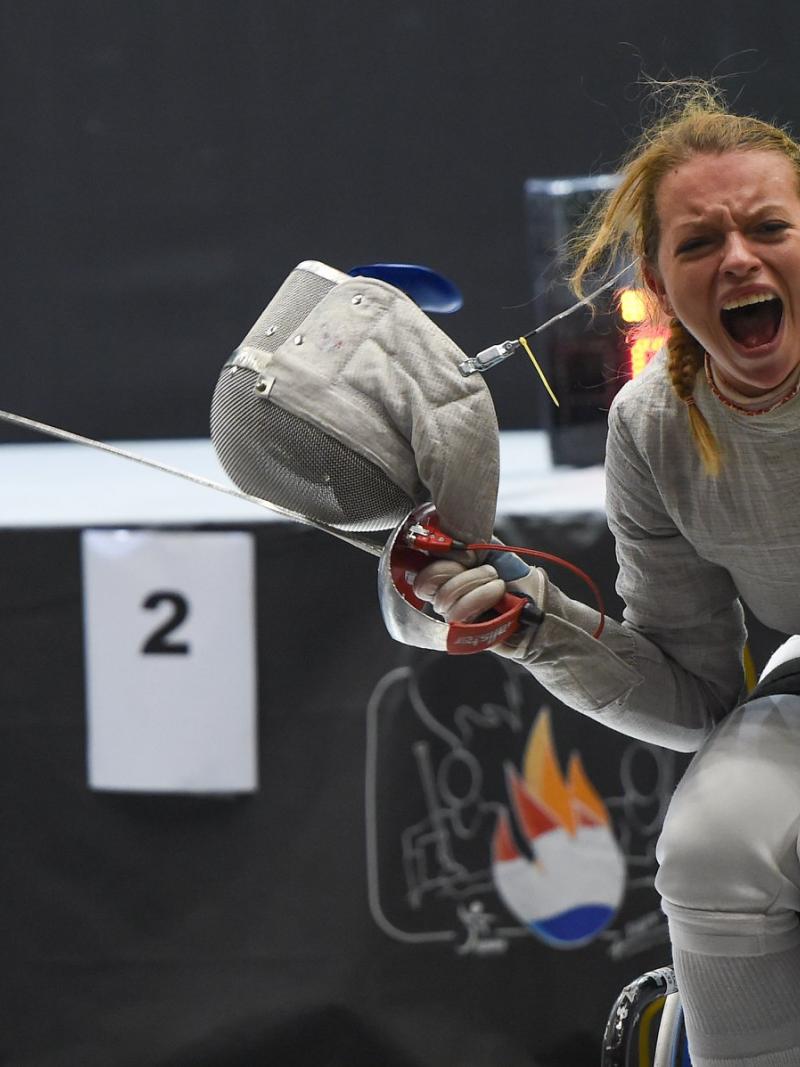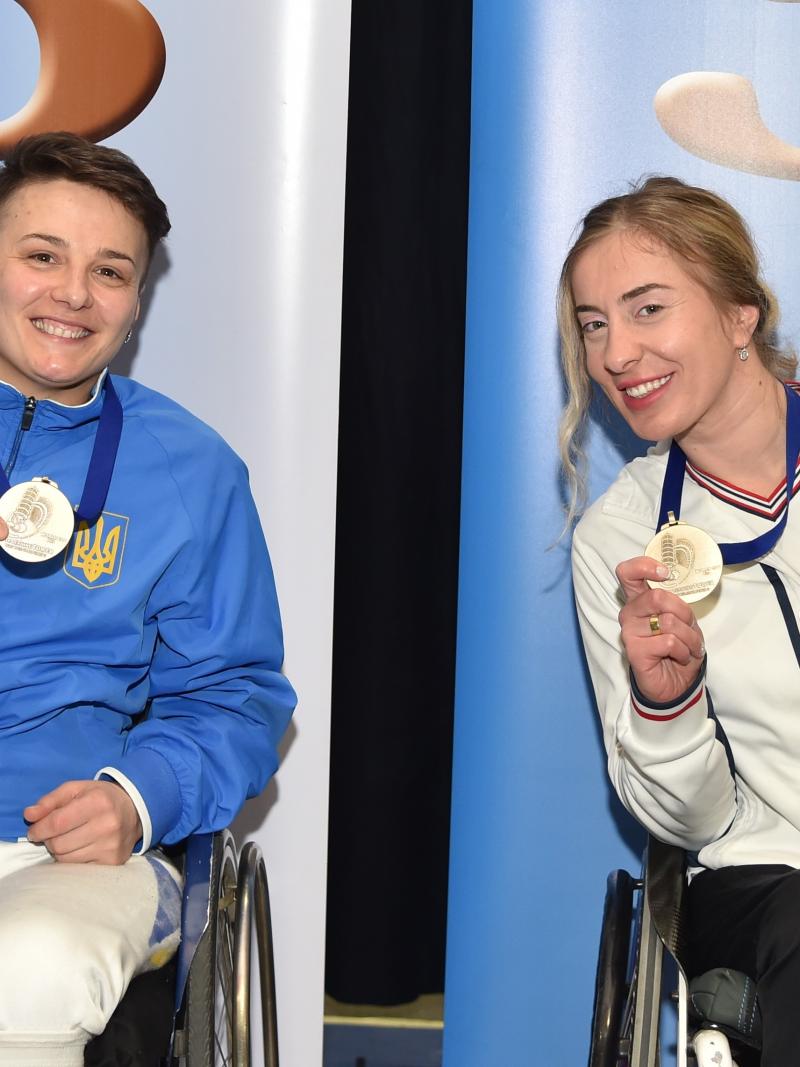Hungary’s Zsuzsanna Krajnyak targets wheelchair fencing gold
A long history of Paralympic experience has helped prepare the Hungarian for Tokyo 2020 21 Aug 2021
It has been over twenty years since wheelchair fencer Zsuzsanna Krajnyak competed at her first Paralympics at Sydney 2000 in the women’s foil and epee category A, but she still has the hunger for gold.
In some days, the 42-year-old Hungarian will be relying on her extensive experience in international competition while trying to achieve something new: a Paralympic gold.
“There is a saying: what works is not to be changed,” Krajnyak said. “Thanks to the experience of the five Paralympics which I’ve attended, more or less successfully, I know how to prepare for a competition like this.”
Krajnyak is used to medal matches. She consistently posts solid performances in both individual and team events and is invariably in the mix for a medal at international tournaments. Two years ago, she had an encouraging season as she grabbed individual and team epee bronze as well as foil gold at the World Championships, and looked to be on-track for success in Tokyo. A fifth and third place at her home World Cup followed in Eger in early 2020.
“I’m very excited that I could qualify for the Paralympic Games. Compared to the other competitions it is much, much harder, because only the best fencers of the world can compete. The opponents are harder, so it becomes a very tense competition. It’s also different because the Paralympics only takes place every four years, and everybody is watching more carefully than a regular competition.”
Despite competing at five Paralympic Games, Krajnyak is still to secure a Paralympic gold. Throughout the years, she has won four silver medals and six bronze medals at Sydney 2000, Athens 2004, London 2012 and Rio 2016. Beijing 2008 has been the only exception so far when Krajnyák failed to take home any silverware in any individual or team event.
The disappointment of Beijing spurred her on at London 2012, which was the closest Krajnyák has been to finally achieving gold. A loss to Hong Kong’s Chui Yee Yu in the epee meant she claimed the silver medal instead. At Rio 2016, Krajnyák once again proved her medalling consistency winning bronze medals in the individual foil and team epee competitions.
If Krajnyák wants to better her Rio 2016 bronze, she will need to make a strong statement on the fencing platform amid strong competition. The Russian Paralympic Committee’s Alena Evdokimova will make her debut in Tokyo and is a good example of how the women’s category A events quickly develop.
Evdokimova competed at her first senior World Championships in 2019, winning bronze in the epee, and returned to competition last month where she secured silver in the foil and epee at the World Cup in Warsaw, Poland. Krajnyák meanwhile has been busy at a dedicated training camp in Tata fencing with the Olympic and Paralympic team.
Even with years of experience behind her, Krajnyák is still training hard, grateful to her fellow competitors who she has been fencing with “day-in day-out throughout this long preparation period which luckily, as I didn’t get coronavirus, has been a very fluent period.”
This past year has been anything but consistent for Paralympic prospects, with uncertainty surrounding the Games. “We didn’t have a national competition at all over the past year and a half so I’m excited to compete again but on the other hand it’s a huge pressure because we don’t quite know where we stand on a national level, let alone international, so I can’t wait to compete again.”
Even if the years of hard work pay off and she secures a gold medal for herself in Tokyo, Krajnyák’s success is a team effort. Her coach, her conditioning trainer and her dietician have all contributed towards a sense of stability in her preparation that allows her to focus on performing at her best. “At first the pandemic was mind-bending. I’m very grateful for my family, and for my daughter who helped me through this hard period with their patience and their love.”
The Tokyo 2020 Paralympics open on 24 August with wheelchair fencing running from 25-29 August.

 Facebook
Facebook
 Instagram
Instagram
 Twitter
Twitter
 Youtube
Youtube
 TikTok
TikTok
 Newsletter Subscribe
Newsletter Subscribe




